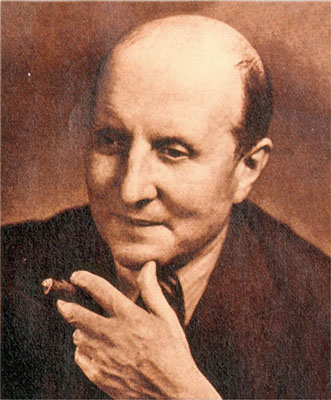Also known as:
Konstantinos Caratheodory, Konstantinos Karatheodoris, Κωνσταντίνος Καραθεοδωρή
More People of Greece
More Topic Categories
Related Destinations
Constantin Caratheodory (13/09/1873 - 02/02/1950)
 Constantine Caratheodory was a Greek mathematician, who made considerable contributions to the theory of functions, the calculus of variations and measure theory, with applications to many fields of Mathematics, Physics and Archaeology.
Constantine Caratheodory was a Greek mathematician, who made considerable contributions to the theory of functions, the calculus of variations and measure theory, with applications to many fields of Mathematics, Physics and Archaeology.He was born in Berlin, Germany; his father was a lawyer from Istanbul and his mother was from the island of Chios. His mother died when he was only six years old; with the help of his grandmother, he was raised in Brussels, where his father worked as an Ottoman ambassador. He studied at schools of the Italian Riviera, San Remo and Brussels, but when he got acquainted with geometry, he fell in love with the field of Mathematics. He completed his studies in 1891 and he immediately joined the Military School of Belgium to become a military engineer. Upon the completion of his degree, he was invited by his uncle, Governor General of Crete, and he went to Chania, where he met Eleftherios Venizelos. He then went to Lesvos to participate in road construction works, and in 1898 he visited Egypt, where he worked as an engineer of the British company constructing the Aswan dam. At the same time, he continued studying mathematical articles and conducted calculations at the Pyramid of Cheops, which he published.
Having realized that his love is not in engineering but in mathematics, he went to Germany in 1900 to study Mathematics at the University of Berlin, and later at the University of Gottingen as a PhD student. He later taught at that university until 1908, the same year that he married his wife Efrosyni, with whom he had two children.
He taught at various German institutions till 1920. He met and collaborated with many renowned scientists, including Albert Einstein, thanks to whom Caratheodory started having an interest in the Theory of Relativity. Despite the fact that he had become a professor at the University of Gottingen, when he was invited by Venizelos to organize the University of Ionia in Smyrna, he immediately accepted.
During the Great Fire of Smyrna in 1920, Caratheodory managed to salvage many of the books and instruments of the university, which he donated to the University of Athens. In 1922, he became a professor at the University of Athens, and, one year later, at the National Polytechnic School of Greece. However, he left in 1924 for the University of Munich, which at the time was the second best university in Germany. In 1928, he became a visiting professor in the USA, after accepting the invitation from Harvard University and the American Mathematical Society. In 1930, he returned to Greece to help in the reformation of the University of Athens and the establishment of the University of Thessaloniki. In 1932, he went back to Munich, and remained there, despite numerous proposals, till his death in 1950.
His contribution to science is immense. In 2002, the University of Munich named one of the largest lecture rooms in the mathematical institute after him. Moreover, in 2009, in the Greek city of Komotini, the “Karatheodoris” museum opened its gates for the first time. Komotini was chosen as it is close to where his family came from. The museum now showcases manuscripts of Caratheodory, including his correspondence with Rozenthal, Einstein, Kneser, as well as his books.
See Also:
 Athens Photos
Athens Photos
 Santorini Photos
Santorini Photos
 Crete Photos
Crete Photos
 Meteora Photos
Meteora Photos
 Corfu Photos
Corfu Photos






